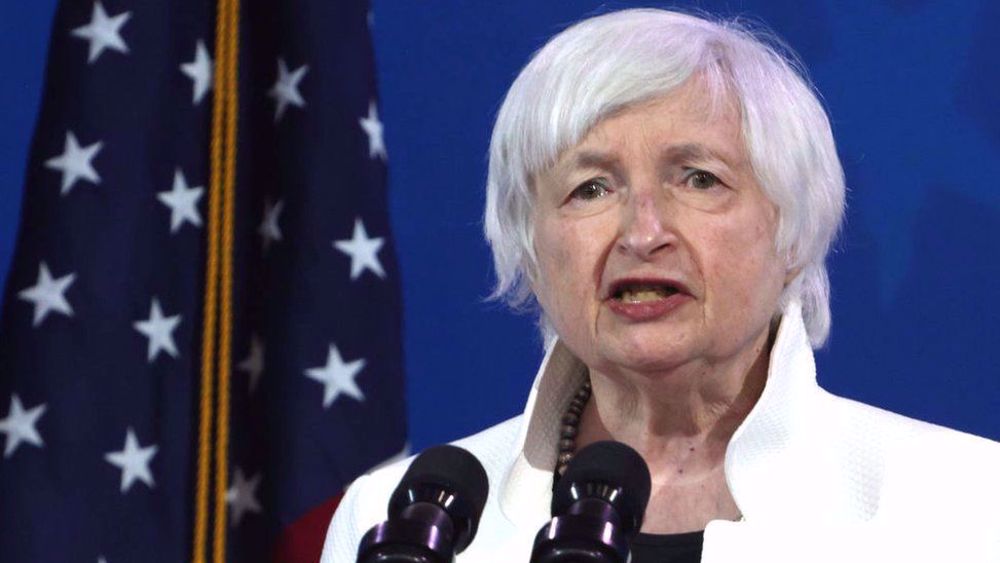US on track to default on national debt in October: Treasury secretary
US Treasury Secretary Janet Yellen has urged Congress to act quickly to raise or suspend the debt limit, warning that the United States is on track to default on the national debt in October.
In a letter on Wednesday, Yellen said that the Treasury Department would likely run out of cash and exhaust “extraordinary” measures next month. She wrote the letter to Speaker Nancy Pelosi (D-Calif.), House Minority Leader Kevin McCarthy (R-Calif.), Senate Majority Leader Charles Schumer (D-N.Y.) and Senate Minority Leader Mitch McConnell (R-Ky.).
"Once all available measures and cash on hand are fully exhausted, the United States of America would be unable to meet its obligations for the first time in our history," Yellen said.
“Given this uncertainty, the Treasury Department is not able to provide a specific estimate of how long the extraordinary measures will last. However, based on our best and most recent information, the most likely outcome is that cash and extraordinary measures will be exhausted during the month of October,” she added.
Her remarks came as the divided Congress faces a growing list of urgent matters when it returns from recess later this month, but Democratic leaders insisted they must address the debt limit.
The Treasury Department has adopted what it calls “extraordinary” measures to avert the United States from defaulting on the national debt since the federal debt limit was reimposed on August 1.
If the Treasury Department could not avoid default without borrowing more money, the United States would fail to pay its debts. Such a scenario would send shockwaves through the US financial system.
Yellen called on Congress for months to raise the debt limit. She has warned that a delay could "cause irreparable damage to the US economy and global financial markets."
Since August, she has asked Congress to make Treasury able to pay debts approved by previous presidents and congressional majorities.
"Waiting until the last minute to suspend or increase the debt limit can cause serious harm to business and consumer confidence, raise short-term borrowing costs for taxpayers, and negatively impact the credit rating of the United States," Yellen wrote.
"At a time when American families, communities, and businesses are still suffering from the effects of the ongoing global pandemic, it would be particularly irresponsible to put the full faith and credit of the United States at risk."
But Republican members of Congress have refused to raise the debt ceiling unless spending cuts and debt reduction programs are attached.
Iran: US airstrikes on Yemen war crimes, violation of international law
Yemeni armed forces down F-18 fighter jet, repel US-UK attack: Spokesman
Iran warns against US-Israeli plot to weaken Muslims, dominate region
VIDEO | Public uproar in US against Israeli regime
‘Ghost town’: 70% of Jabalia buildings destroyed by Israel
Mother’s Day: Sareh Javanmardi’s inspiring journey as Paralympic champion and mother
Russia downs over 40 Ukrainian drones as Putin vows 'destruction' on Kiev
VIDEO | Yemen: A bone in Israeli neck











 This makes it easy to access the Press TV website
This makes it easy to access the Press TV website